The C4B consortium is interested in establishing links with other collaborative projects and initiatives that are working on related topics, to organise joint activities, exchanging feedback and discuss possible future collaborations in other EU projects.
Would you like to join our network for collaborative Dissemination & Communication activities? CONTACT US!

PRIMED
PRIMED will co-create innovative Circular Business Models (CBM) in the bioeconomy with a multi-actor approach, integrating primary producers into novel bioeconomy value chains. This effort seeks to boost primary production, reduce costs, and contribute to European industrial sustainability, competitiveness, and resource independence.
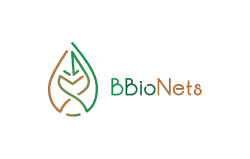
BBioNets
BBioNets will constitute a thematic network that will rely on, promote, and further advance the work carried out by EIP-AGRI Operational Groups (OGs) with respect to management and/or processing of agricultural and forest biomass with Bio-Based Technologies (BBTs). The project will set up 6 regional Forest and Agriculture Networks – FANs (IE, ES, IT, EL, PL, CZ) that will identify local needs, prioritise specific BBTs and share BBT knowledge ready for practice to farmers and foresters, boosting the (re)definition of value chains, stimulating crossfertilisation beyond borders, and bringing Europe to the forefront of farming, forestry and bioeconomy with economically viable and sustainable practices.
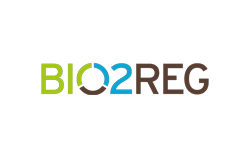
BIO2REG
BIO2REG is an EU-funded project that aims to enable the systemic transition of greenhouse gas-intensive regions through concrete and actionable measures to become bioeconomy model regions. Running from 2024 to 2026, the project is coordinated by BioökonomieREVIER at Forschungszentrum Jülich, and involves a consortium consisting of 9 partners from 8 European countries.
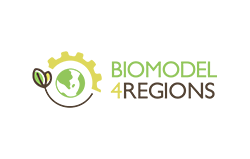
BIOMODEL4REGIONS
BIOMODEL4REGIONS aims to support the establishment of the innovative governance models at local/regional level to achieve better informed decision-making processes, social engagement and innovation to support and strengthen EU and international science-policy interfaces to achieve the Sustainable Development Goals.
The methodology is based on the set-up of a governance structure among bioeconomy clusters that will leverage on previous successful projects, initiatives, and best practices to capitalise on work performed through several years of research and studies in the field of bioeconomy. These results will be demonstrated within the project to support 6 pilot regions chosen in clusters’ network.
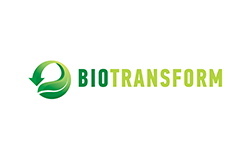
BIOTRANSFORM
BIOTRANSFORM provides European policymakers with an adequate assessment and policy development framework, knowledge base and expert support ecosystem to accelerate the transition from linear fossil-based systems to circular bio based systems. It is therefore operating at the interface between the circular economy and the bioeconomy transitions. In this way, BIOTRANSFORM equips policymakers with the tools to set informed priorities that serve environmental, economic, and social goals, being actionable, future-proof, and align with supply-and-demand trends in related industries and value chains.
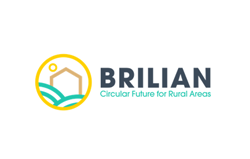
BRILIAN
The BRILIAN project supports the adoption sustainable, cooperative business models in rural areas to enhance rural development and protect biodiversity and the climate. These models will allow farmers to increase their incomes and diversify their income sources, thereby reducing economic risk.
To develop and test the models, the project is implementing three pilots in Denmark, Italy and Spain. These pilots – which use and adapt existing rural infrastructure – consist of actions aimed at forging robust rural bio-communities, achieving circularity and sustainability, creating short supply chains and producing value-added bio-based products. They will lead to the design and optimisation of 10 bio-based value chains: six in Italy, two in Spain and two in Denmark.

CEE2ACT
A more bottom-up approach is needed to foster the bioeconomy transition in Europe. To do so, CEE2ACT is empowering countries in Central Eastern Europe and beyond (Bulgaria, Croatia, Czech Republic, Greece, Hungary, Poland, Romania, Serbia, Slovakia and Slovenia) to develop circular bioeconomy strategies and action plans through innovative governance models.
The objective is to achieve better informed decision-making processes, societal engagement and innovation, building on the practice of partners from contributing countries (Austria, Germany, The Netherlands, Belgium, Spain, Finland, Sweden), and addressing relevant economic, social and environmental aspects. More info.
More info
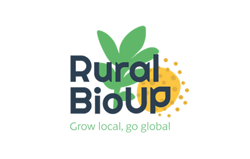
RuralBioUp
RuralBioUp’s main objective is to to support regional actors (e.g., policy makers, innovators, farmers, foresters) to scale-up and develop local bio-based solutions with a view to boost rural development at the regional level. The project will strengthen the cooperation among regional key actors and knowledge holders by establishing 9 Regional Hubs in 6 EU countries (IT, CZ, FR, LV, IE and RO), where a set of empowering activities will be implemented (e.g., development of Actions Plans, trainings, mentoring, coaching, MML workshops, co-creation and networking events) to support development of local bio-economy initiatives. RuralBioUp will also develop a One-Stop Shop – an online matching tool gathering bio-economy related information (e.g.on biomass, business models, technologies, financial support) to help local stakeholders to effectively plan and implement their bio-based activities

SYMBA
The SYMBA project aims at creating a new and innovative Industrial Symbiosis (IS) methodology to be replicated within EU according to the local/regional bio-based industrial ecosystem. SYMBA will implement a user-friendly and accessible AI database suggesting regional IS innovative processes to create zero-waste value chains, ensuring more local supply chains, a better distribution of economic and social benefits among the stakeholders and an increase in the economic value of final products.
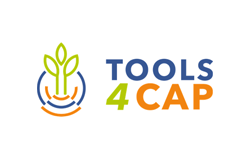
Tools4cap
The latest reform of the Common Agricultural Policy (CAP) introduced a new way of delivering the policy, seeking to promote more evidence-based policymaking, stronger subsidiarity, and higher policy performance. This reform brings new responsibilities for Member States, which are required to design and monitor their own CAP Strategic Plans for the first time, creating significant challenges in terms of skill development and methodological tool implementation. The Tools4CAP project addresses these challenges offering support to Member States in designing and monitoring of the 2023-2027 national CAP Strategic Plans. Through a bottom-up approach, the project facilitates the adoption of innovative tools and methods, ensuring effective preparation for post-2027 CAP Strategic Plans.
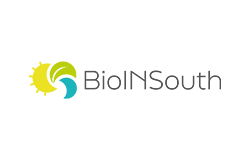
BioINSouth
The BioINSouth project aims to support decision-makers to incorporate considerations of ecological limits into their regional bioeconomy strategies and roadmaps, through digital tools relevant to circular bio-based activities. BioINSouth applies a multi-actor approach to provide regional solutions through Multi Actor Regional Groups (MARGs) and the creation of related bioeconomy HUBs, that can be replicated throughout Europe, for meaningfully incorporating environmental and socioeconomic aspects in bio-based industrial systems. BioINSouth will build up its methodology in eight European regions (Campania – Italy, Peloponnese – Greece, Andalusia and Asturias – Spain, Centro Region – Portugal, Nouvelle-Aquitaine – France, Slovenia and, Cyprus) by establishing an equal number of use cases, thus reinforcing the capacity of biobased value chains in the Mediterranean.
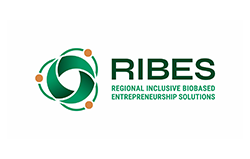
Ribes
The RIBES project (Regional Inclusive Biobased Entrepreneurship Solutions) aims to accelerate the adoption of bio-based innovations by developing governance and business models that integrate the principles of the circular bioeconomy, social innovation, and rural development. Focused on ten European regions, RIBES fosters collaboration among policymakers, businesses, academia, and civil society to create sustainable and inclusive bio-based value chains. By promoting stakeholder engagement and innovative practices, the project contributes to building resilient rural economies and advancing the European bioeconomy agenda.


